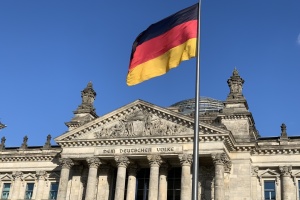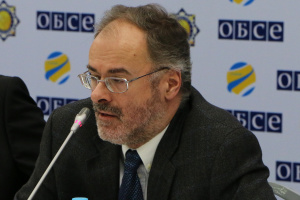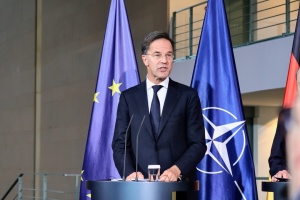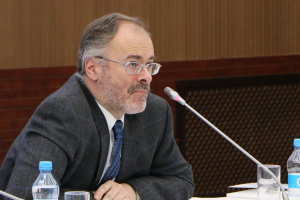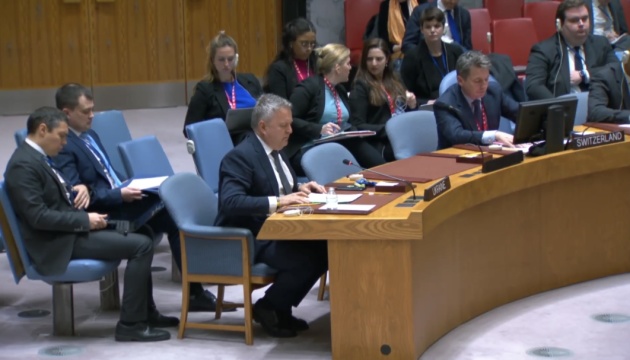
Ukraine’s envoy rebukes at UNSC Russia’s claim ICJ allegedly justifies its actions
Vasiliy Nebenzya, Russia’s Ambassador to the UN, earlier told the UNSC that the International Court of Justice had allegedly rejected all accusations put forward by Ukraine and thus justified Russia’s actions.
Nebenzya claimed that Russia knew for sure that the UNSC would not hear from the Ukrainian representatives and their Western patrons of the conclusions of the showdown organized by Kyiv at the UN International Court of Justice in The Hague involving a lawsuit against Russia for financing terrorism in Donbas and discrimination against Ukrainians and Crimean Tatars in Crimea.
However, most of Kyslytsya's speech was in fact related to the conclusions of the International Court of Justice.
"I can offer, however, for the graduates of the MGIMO and Diplomatic Academy in Moscow ... a crash course "Law 101: Everything you need to know about the ICJ judgments delivered on January 31 and February 2," Kyslytsia said. (Nebenzya graduated from MGIMO, Dmitry Polyansky – from Diplomatic Academy - ed.)
Kyslytsya recalled that, according to the court judgment of January 31, Russia violated the International Convention on Combating the Financing of Terrorism, the International Convention on the Elimination of All Forms of Racial Discrimination, as well as the court order on provisional measures of April 19, 2017.
According to Kyslytsya, the court established that Russia persecuted the Crimean Tatars for their political opposition to Russia’s actions in Crimea.
In addition, maintaining the ban on the Mejlis, Russia violated the order on provisional measures, according to which it is obliged to refrain from applying or maintaining restrictions on the ability of the Crimean Tatars to maintain their own representative institutions, including the Mejlis.
The court established the existence of a pattern of racial discrimination against Ukrainians in Crimea, noting “a steep decline in the number of students receiving their school education in the Ukrainian language” and finding that it “produced a disparate adverse effect on the rights of ethnic Ukrainian children and their parents,” the ambassador said.
As for the judgment of the International Court of Justice on February 2, "it means that Ukraine’s case against Russia under the 1948 Genocide Convention is moving forward," Kyslytsya added.
"We urge Russia to stop falsifying reality and lecturing us about international law it itself continues to flagrantly violate," he added.
James Kariuki, UK’s Permanent Representative to the UN, also pointed out at the UNSC meeting that court judgments say Russia has violated international law in three ways.
In particular, Russia discriminated against Ukrainians, failed to investigate allegations of financing of terrorism, did not comply with the court's order not to escalate disputes with Ukraine, and did not pull its troops from the territory of Ukraine.
As Ukrinform reported earlier, on January 31, the International Court of Justice handed down a judgment in the case of Russia's violation of the two conventions - on the fight against the financing of terrorism and on the prohibition of all forms of racial discrimination.
On February 2, the International Court of Justice recognized its jurisdiction in the case of Ukraine against the Russian Federation regarding "genocide".


